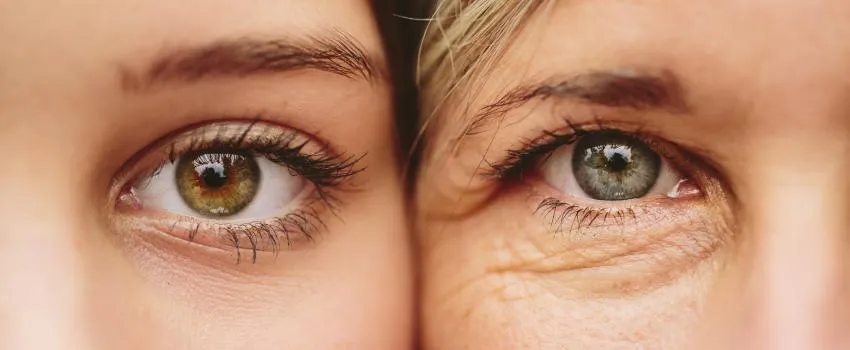Age Related Vision Problems: Causes and Solutions

Age Related Vision Problems
As we age, it is common to experience changes in our vision. These changes can range from minor issues like difficulty reading small print to more severe problems like age-related macular degeneration. In this blog post, we will discuss the most common age-related vision problems, their causes, and potential solutions.
Presbyopia
Presbyopia is a condition that affects almost everyone as they age. It is the gradual loss of the ability to focus on close objects, such as when reading a book or using a computer. This happens due to a hardening of the lens in the eye, which occurs naturally as we age. The most common solution to this problem is to use reading glasses or bifocal lenses.
Cataracts
Cataracts are a common condition in older adults, where the lens of the eye becomes cloudy, leading to blurred or distorted vision. This condition is caused by a buildup of protein in the lens, which can occur due to age, genetics, or prolonged exposure to UV radiation. The solution to this problem is cataract surgery, which involves replacing the cloudy lens with an artificial one.
Age-related Macular Degeneration
Age-related macular degeneration (AMD) is a severe condition that affects the central vision of older adults. It occurs when the macula, a small spot in the center of the retina responsible for sharp vision, begins to deteriorate. This condition can lead to a loss of central vision and, in severe cases, blindness. While there is no cure for AMD, early detection and treatment can help slow the progression of the disease.
Glaucoma
Glaucoma is a condition that affects the optic nerve, which is responsible for carrying visual information from the eye to the brain. It can cause vision loss or blindness if left untreated. Glaucoma is caused by increased pressure in the eye, which can damage the optic nerve. The solution to this problem is medication or surgery to lower the pressure in the eye.
Diabetic Retinopathy
Diabetic retinopathy is a condition that affects people with diabetes. It occurs when high blood sugar levels damage the blood vessels in the retina, leading to vision loss or blindness. The best solution to this problem is to manage blood sugar levels through medication, diet, and exercise.
In conclusion, age-related vision problems are common, but they are not inevitable. There are several ways to manage and treat these conditions, from using corrective lenses to surgery and medication. However, it is essential to maintain good vision health by getting regular eye exams, eating a healthy diet, and protecting your eyes from UV radiation and other harmful factors. By taking care of our eyes as we age, we can enjoy healthy vision for years to come.
